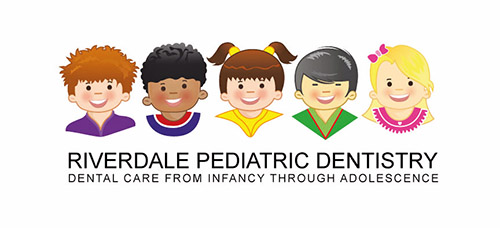
Have you ever heard the saying that little kids only have little problems? While their teeth may be small, when it comes to the health of children’s teeth and gums, the complexities and issues may be big. However, a trained specialist may have multiple techniques at their disposal to make treating these issues easier for the child and their family.
One of the products that is particularly useful in conservatively treating pediatric dental issues is silver diamine fluoride, generally known as SDF. This is a colorless, odorless liquid that is applied to teeth to help stop cavities from getting worse, or to manage other forms of tooth decay. As the name suggests, SDF contains up to 25% silver, which in this case acts as an antimicrobial agent, and has been used in dentistry for over a century as a means of eliminating or delaying the growth of bacteria. Clearly, silver is not only a precious metal or just something nice to look at. Combined with the mineral properties of fluoride, silver has important clinical applications.
SDF is often suggested by dentists when a cavity has begun to form, or on smaller cavities, especially for children and for special needs patients. It keeps the cavities to a minimum and stops them from enlarging. This is particularly important because untreated cavities can lead to other health problems and a lower quality of life for children and their families. As we know, cavities can cause significant discomfort.
SDF is also the preferred treatment option for patients who may not be comfortable with drilling or have anxiety when it comes to seeing a dentist in the first place. For some children or special needs patients, sedation or general anesthesia may be required to treat their cavities, but SDF can delay the need for such a procedure, particularly for children under the age of 3, since multiple exposures to general anesthesia is not recommended below this age.
When compared with other treatment options, SDF is cost-effective, quick and easy for a dentist to apply. On top of that, it may be the best option for cavities that are hard to reach, particularly in back teeth, since it is painlessly brushed onto the affected area.
Yet for all these benefits, SDF generally leaves a permanent black stain on anything that it comes into contact with, from clothing and tissue paper to teeth. In general, it is applied to back teeth, where such a stain may be less visible, or in the case of children, to baby teeth that are going to eventually fall out. For most people, with the right advice and guidance, this is a non-issue because dentists know how to apply it so that the stain is as small as possible. Nonetheless, this drawback is something to consider.
The FDA has approved the use of SDF as a “breakthrough therapy,” and since 2017, the American Academy of Pediatric Dentistry (AAPD) has recommended the use of SDF on baby teeth or permanent teeth in children or adults to help stop the progression of small cavities, or in cavity-susceptible areas. Of course, SDF is not the only treatment option available to dentists, and it may not be recommended or appropriate in all circumstances. Sometimes, though, it is the ideal option when a cavity has just started to form, or for small children and their small teeth. SDF slows the progression of a cavity and allows both the patient’s family and the dentist to determine next steps, which may require further intervention.
Like all dental procedures, the area where SDF is applied requires regular monitoring and an annual touch up, but is perfectly safe and widely used, and has been proven to be an effective cavity treatment option. To discuss if SDF is the right choice for you or your children, contact Riverdale Pediatric Dentistry at 718-725-8997.
Dr. Liraz Spear is the founder of Riverdale Pediatric Dentistry. She is a board-certified pediatric dentist who has been practicing for over 20 years. She received her dental degree at Columbia University and then furthered her pediatric dental training at UMDNJ (currently Rutgers School of Dental Medicine). Dr. Spear is affiliated with Lenox Hill Hospital and was on faculty at Columbia University’s College of Dental Medicine. Dr. Spear stays current in her field and ensures that Riverdale Pediatric Dentistry offers the latest and most-trusted care to children from infancy through adolescence.You can reach her office at 718-725-8997.












